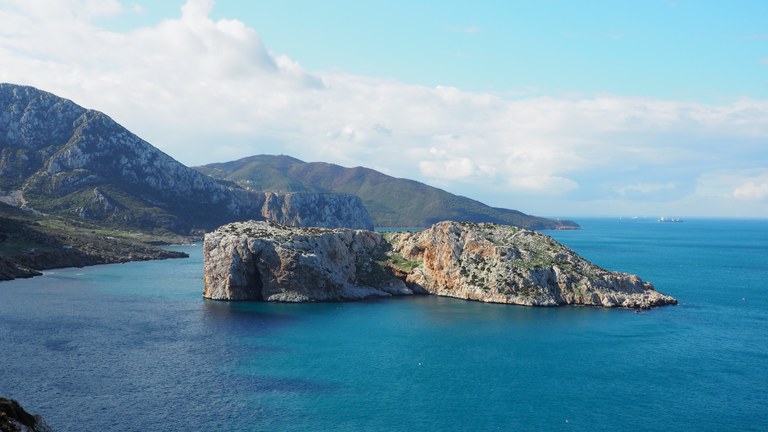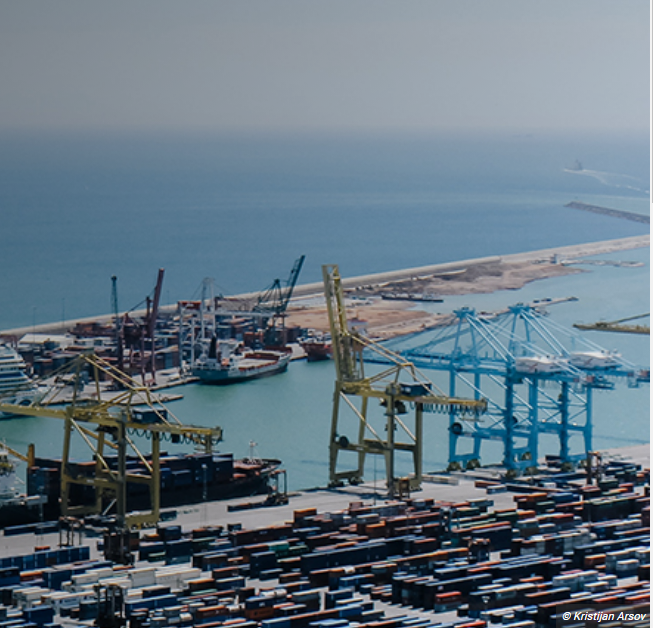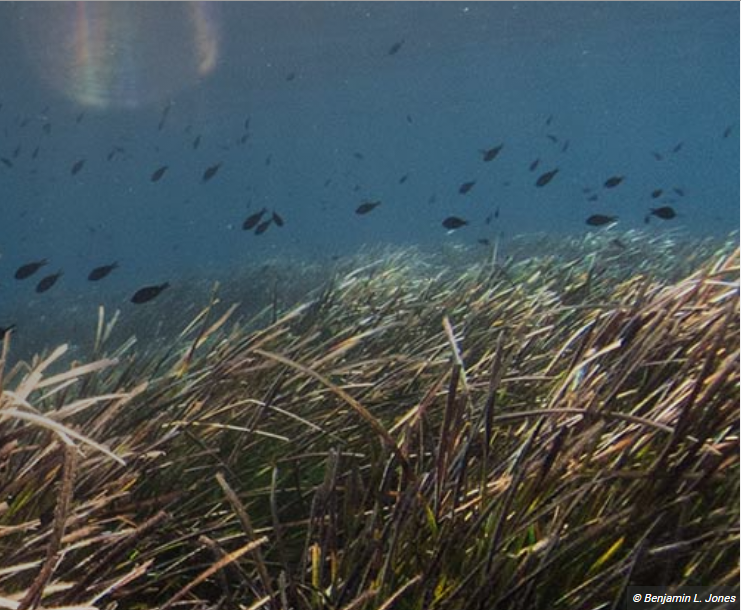THE MULTIPLE FACETS OF ECOSYSTEM RESTORATION UNDER THE BARCELONA CONVENTION
A blue economy aligned with SDG 14 can pave the way for the green renaissance that we wish to see in the Mediterranean Region. In a paper on the blue economy in the Mediterranean, released in 2020, Plan Bleu, the France-based Regional Activity Centre of UNEP/MAP, highlighted the main issues and challenges constraining the region’s efforts to tap the potential of this economy that is a low polluting, resource-efficient and circular economy based on sustainable consumption and production patterns, enhancing human well-being and social equity, generating economic value and employment, and significantly reducing environmental risks and impact on biodiversity.
Zoonotic spillover has demonstrated in the most tragic of ways that the protection of biodiversity is not only critical to nature but also to human health. In the Mediterranean region, SPA/RAC, the Tunisia-based Regional Activity Centre of UNEP/MAP, is currently working on the development of the post-2020 Strategic Action Programme for the Conservation of the Biological Diversity and sustainable use of natural resources in the Mediterranean Region (post-2020 SAPBIO), which would lead to prioritizing and planning urgent actions at the regional and national levels for the sustainable management of Mediterranean biodiversity until 2030. The post-2020 Regional Strategy for Marine and Coastal Protected Areas (MCPAs) and Other Effective area-based Conservation Measures (OECMs)—also under preparation—is expected to boost conservation in the Mediterranean Sea and coast. 
Article 10 of the Protocol on Integrated Coastal Zone Management in the Mediterranean (ICZM Protocol) of the Barcelona Convention indicates that the Contracting Parties “shall take measures to protect certain specific coastal ecosystems: wetlands and estuaries; marine habitats; coastal forests and woods; and dunes”. PAP/RAC, the Croatia-based Regional Activity Centre of UNE/MAP, is working to step up coastal ecosystem restoration. PAP/RAC has recently contributed to the formulation of green adaptation options—a set of solutions based on the Ecosystem Approach that range from reinforcing natural defenses, such as dunes and cliffs, to maintaining and restoring coastal wetlands and seagrass.
Coming from land and often from the coast, marine litter remains one of the most arduous challenges hampering ecosystem restoration efforts in the Mediterranean. The combination of overly tolerant existing regulations and unbridled production and consumption patterns generates excessive amounts of waste. It is estimated that 730 tonnes of plastic end up in the Mediterranean Sea every day.
In 2018, SCP / RAC, the UNEP / MAP Regional Activity Center based in Spain, helped identify over 100 actions to reduce marine litter, including activities that can be implemented in marine litter areas. marine protected areas (MPAs) to safeguard important ecosystem services.
Since 2020, SCP/RAC supports marine litter prevention and mitigation measures in three MPAs located in Italy and Spain. In the Miramare MPA (Italy), measures are now in place to curb littering caused by mussel nets. In the Spanish natural parks of Ebro Delta and Cabo de Gata-Níjar, SCP/RAC interventions focus on curbing marine litter originating from bars, festivals and other recreative activities, including the infamously ubiquitous beverage containers made of PET.
Promoting the concept of "Extended Producer Responsibility" (EPR), which is part of waste disposal measures, is an important concept that highlights the central role of the private sector in efforts to restore ecosystems. In the Mediterranean context, maritime transport is one of the sectors where industry plays a central role in bending the pollution curve and ensuring that growth does not come at the expense of the natural systems that underpin life and livelihoods. 
REMPEC, the Malta-based Regional Activity Center jointly administered by UNEP / MAP and the International Maritime Organization (IMO), is making progress in cleaner maritime transport in the Mediterranean. The possible designation of the Mediterranean Sea as a “Sulfur Oxide Emission Control Area (Med SOx ECA) would make it one of the busiest waterways in the world.
Emissions from ships contribute to the overall air quality degradation in the Mediterranean region, particularly in coastal zones. Emissions of Sulphur Oxides (SOx), in particular, can cause acid rain that harms ecosystems. They can also combine with other pollutants to generate fine particles, the inhalation of which can lead to respiratory and cardiovascular ailments.
The REMPEC endeavor is part of the implementation of the Regional Strategy for Prevention of and Response to Marine Pollution from Ships (2016-2021). In addition, the Ballast Water Management Strategy for the Mediterranean Sea (2022-2027), currently being prepared by REMPEC in consultation with SPA/RAC, will address the introduction of non-indigenous species (NIS) by shipping activities.
 More than 1,000 non-indigenous species have already been identified in the Mediterranean. Invasive species disrupt the natural balance of ecosystems, and so do human-made pollutants released into the coastal and marine environment.
More than 1,000 non-indigenous species have already been identified in the Mediterranean. Invasive species disrupt the natural balance of ecosystems, and so do human-made pollutants released into the coastal and marine environment.
MED POL, the UNEP/MAP Programme for the Assessment and Control of Marine Pollution in the Mediterranean, is spearheading efforts in the formulation and implementation of pollution monitoring, control and prevention as well as regulatory measures aiming to bolster ecosystem restoration. The Regional Plan on the Reduction of Biochemical Oxygen Demand (BOD) from Urban Wastewater, which MED POL is currently upgrading, is a case in point.
BOD measures the amount of oxygen required or consumed for the microbiological decomposition of organic material in water: the more organic pollution, the less oxygen to sustain marine ecosystems.
The Regional Plan on Marine Litter Management in the Mediterranean—another instrument being upgraded by MED POL— and a new Regional Plan on Sewage Sludge Management are part of a raft of pro-sustainability measures to be considered by the twenty-second Meeting of the Contracting Parties to the Barcelona Convention and its Protocols (COP 22, December 2021, Antalya, Turkey).
The next Medium-Term Strategy (2022-2027) to be considered for adoption by the Contracting Parties at COP 22 will concentrate the UNEP/MAP expertise and resources on accelerating ecosystem restoration, among other green pursuits.

